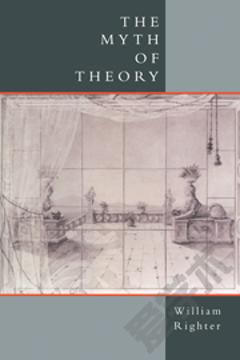The Myth of Theory
What is critical theory, and to what extent can it claim to exist as a free-standing entity independent of the object of enquiry? Is the much-discussed gulf between Anglo-Saxon empiricism and Continental post-structuralism more apparent than real? In The Myth of Theory William Righter explores the nature of thinking about literature and the assumed polarities between the abstract reasonings of philosophy and the concrete exploratory manoeuvres of critical practice. He goes on to examine the role of theory in critical observation, through extended case studies of the work of critics including Barthes. Bloom, Poulet, Eliot, Empson, Kristeva and Derrida. His underlying argument is that criticism uses theory but is never effectively directed or controlled by it: the inherent radicalism built into critical practice fragments and transforms general concepts in the act of applying them.
{{comment.content}}








 京公网安备 11010802027623号
京公网安备 11010802027623号